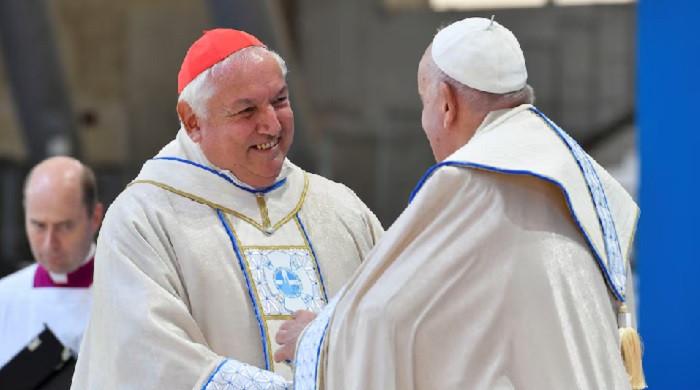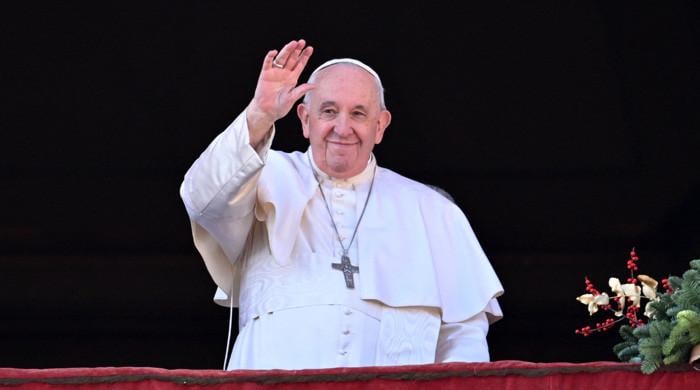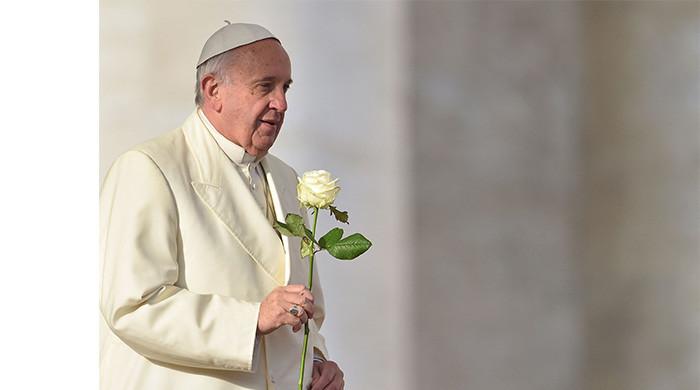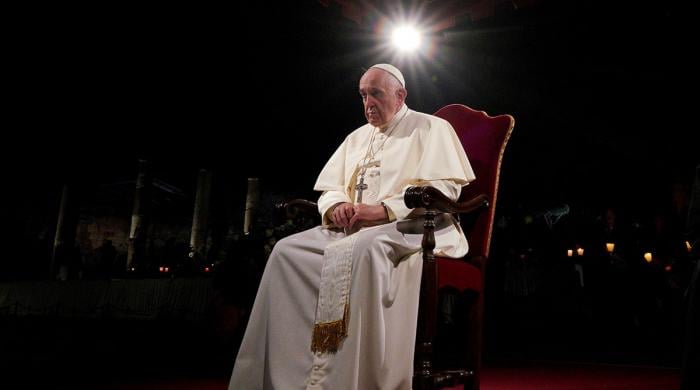View from Brussels: What's the hold-up at the FATF?
Pakistan has made significant progress on FATF compliance; is external pressure preventing its white-listing?
February 26, 2021
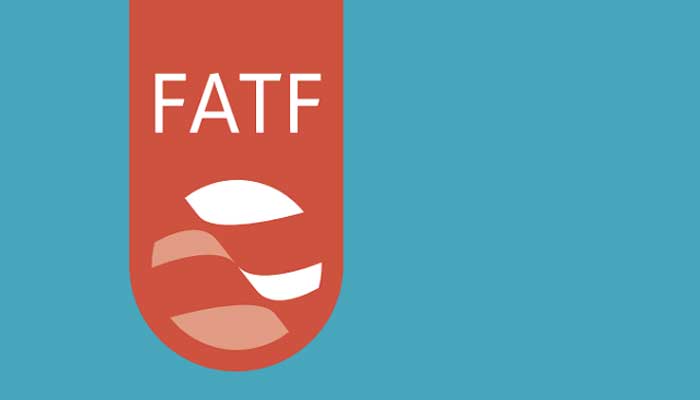
BRUSSELS: Despite Pakistan's significant progress, the Financial Action Task Force (FATF) has decided to keep Pakistan in its grey list, a group of countries that are under "increased monitoring".
Pakistan has so far satisfactorily complied with 24 out of 27 items in the action plan agreed between FATF and Pakistan in June 2018. Yet, the progress still does not seem good enough for those doing the oversight.
FATF and the European Commission have insisted that Pakistan's case has been judged on the basis of the task force's framework, not international relations or politics. "All countries are equal, big or small," insists Marcus Pleyer, the president of FATF.
The European Commission, in response to a question from this correspondent, stated that the decision to keep Pakistan in the grey list was made on 'technical grounds' and if Pakistan meets the conditions of the FATF in the country action plan, it will be out of the grey list.
However, contrary to these explanations, Pakistani authorities have repeatedly hinted that they feel the review process has been skewed against them. And there seems to be some truth to their belief.
Europe, and France in particular, do seem to be playing a political role in keeping Pakistan in the grey list, according to observations made by many experts on Franco-Pakistani relations.
They believe that the last of Pakistan's problems at the FATF may have a French connection, as France had explicitly warned Pakistani lawmakers in 2016 to take action against Jamaat-ud-Dawa, Lashkar-e-Taiba and the Falah-e-Insaniat Foundation, as well as their leaders Hafiz Saeed and Masood Azhar.
Those demands were eventually incorporated into the country action plan handed to Pakistan in 2018.
Due to various domestic reasons, Pakistan was unable to comply with those demands at the time.
And, upon review of the remaining conditions FATF insists Pakistan is yet to comply with, it seems the demands that France made in 2016 are very much alive.
Recent tensions with France have certainly not helped the situation. After Pakistan's Minister for Human Rights Shireen Mazari recently tweeted that French President Emmanuel Macron was treating Muslims like Nazis had treated Jews in World War II — a tweet she later removed — the French Foreign Ministry spokesman had immediately called for an apology from Pakistan.
This week, the French foreign ministry summoned a member of Pakistan's diplomatic staff in the country in protest after President Arif Alvi expressed disappointment over a bill passed by France's parliament that has been seen to be discriminatory against Muslims.
Prime Minister Imran Khan has also not pulled any punches when criticising Paris for its inflammatory policies with respect to Muslims.
The state of affairs is reflected in the fact that Pakistan has had no ambassador in France for the past four months.
India, on the other hand, which Islamabad has consistently found to have exerted itself to blacklist Pakistan, has great influence in France and directly influences Asian PG — a FATF subsidiary.
It is worth noting that France and India also maintain a discreet ‘strategic dialogue’ that covers joint cooperation against terrorism.
It is also worth noting that France is a major supplier of military equipment to India.
France’s 72% growth in weapons exports in the 2015-2019 period from five years prior is mostly thanks to the Dassault Aviation and Naval Group. The first of those companies sold Rafale fighters to India while the second exports submarines to India.
Journalists associated with the French publication Le Figaro have claimed to this scribe that anti-India stories and columns are blocked from publication.
The allegation, while surprising, also makes sense because the Dassault group (the French aircraft manufacturer) owns the paper.
With all of these cogs turning simultaneously, it is worth asking whether there's more to the FATF proceedings than meet the eye.
Pakistani authorities do seem to believe so, given that they recently said that they expected to be cleared if the matter was decided solely on its merits.
Alas, it seems that it was not to be so.







